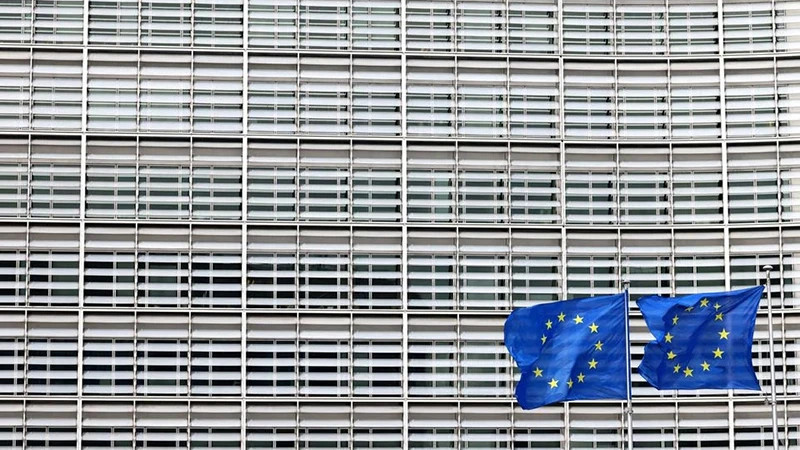On social network X, European Council President Charles Michel said EU leaders have agreed on an aid package worth 50 billion EUR to Ukraine.
The budget issue caused controversy at the EU Summit in December 2023. At that time, Hungarian Prime Minister Viktor Orban vetoed aid to Ukraine, making it impossible for the EU to reach a consensus on the bloc's budget plan and forcing the bloc to meet again in early 2024 to resolve the deadlock.
According to Michel, the EU is taking a leadership role and demonstrating responsibility to support Ukraine. Leaders of Ukraine and EU countries welcomed the above decision. Deputy Prime Minister and Minister of Finance of Ukraine Yulia Svyrydenko said that the aid contributes to stabilising Ukraine's macroeconomy.
On the EU side, German Prime Minister Olaf Scholz said that the approval of the aid package in a short time right after the summit began was a success.
The budget issue caused controversy at the EU Summit in December 2023. At that time, Hungarian Prime Minister Viktor Orban vetoed aid to Ukraine, making it impossible for the EU to reach a consensus on the bloc's budget plan and forcing the bloc to meet again in early 2024 to resolve the deadlock.
As a country with a strong opposition to the aid package, Hungary's withdrawal of its veto at the recent extraordinary summit came as a surprise. According to the Financial Times, before the summit, the EU increased pressure on Hungary with warnings about the consequences the country may face if Budapest vetoes the aid package for Kyiv, including economic damage to Budapest.
The EU agreement was reached in the context of the prospect of aid from the US to Ukraine becoming dim due to disagreements in the US Congress. Republican lawmakers opposed the efforts made by President Joe Biden's administration to provide an additional 60 billion USD in support to Kyiv. The situation is assessed to become even more complicated in the context of the approaching US presidential election.
According to EU officials, without new aid, Ukraine will run out of funding in the next few months. Ukraine's total domestic and foreign debt was at a record high of 145.32 billion USD. Ukraine's Ministry of Finance estimates that Ukraine needs more than 37 billion USD in external financing in 2024. Ukrainian Prime Minister Denis Shmygal proposed to convene an urgent meeting with Kyiv's donors to discuss financing for the budget of Ukraine.
Meanwhile, the crisis of European farmers was also discussed by EU leaders at the extraordinary summit. Belgian farmers brought about 1,000 tractors to block most neighbourhoods of Brussels, where the important EU meeting took place.
The reason why European farmers organised protests was that they felt they were not paid a fair price for their products, while they were subject to many taxes and strict "green regulations", as well as had to fight against unfair competition from foreign manufacturers.
The emergence of imported grain from Ukraine, a country that enjoys EU quota and tax exemption regulations, and new negotiations on signing a trade agreement between the EU and the Southern Common Market (MERCOSUR) have sparked dissatisfaction among farmers in EU countries. In the press conference after the extraordinary summit, President of the European Commission (EC) Ursula von der Leyen affirmed that the EU is still making efforts to support farmers. Most recently, the EU has proposed a one-year extension of import tax exemption regulations for Ukrainian agricultural products, but with "defensive measures" to prevent cheap imports from entering the EU market, causing damage to farmers.
The EU is trying to resolve difficulties before the European Parliament (EP) elections in June 2024. The fact that EU countries reach a unified voice to create a foundation for realising common action on challenging issues, especially those related to foreign budget and policy, is extremely important for the bloc’s position and prestige.
















